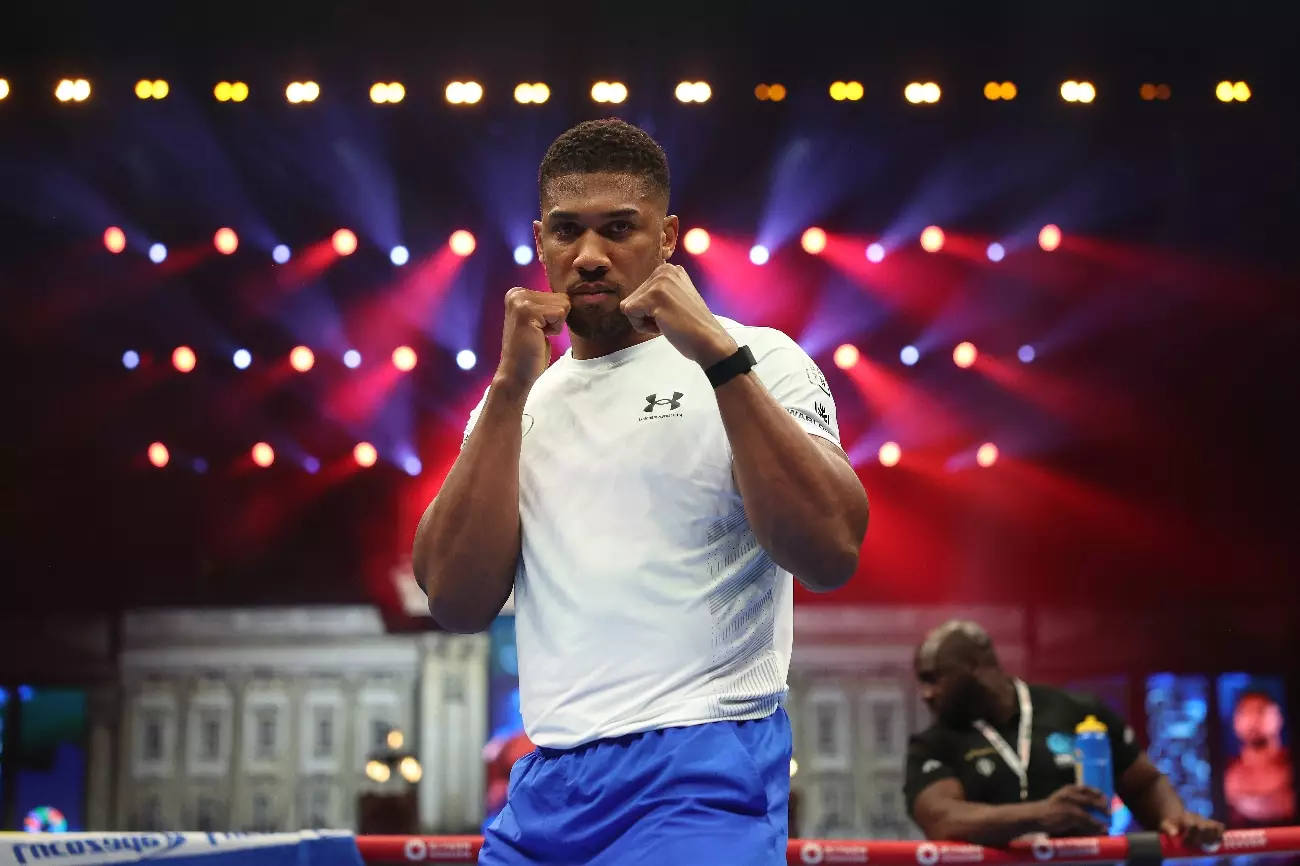In the world of professional boxing, the arena isn’t just about the fighters in the ring; it’s also about the personalities who shadow them, shaping narratives and fan perceptions. One such figure, Anthony Joshua, has recently found himself in a peculiar position of prominence and retreat. With the highly anticipated rematch between Tyson Fury and Oleksandr Usyk fast approaching, Eddie Hearn, Joshua’s promoter, has raised questions about whether the former heavyweight champion will be present at ringside. Hearn’s insights point toward Joshua opting for solitude over the spotlight—a decision that reflects a blend of personal and professional considerations in the wake of his recent setbacks.
For an athlete of Joshua’s caliber, the mental toll of consecutive defeats can be a formidable barrier. Following his losses to Usyk, Joshua experienced a considerable decline that seemed to ripple through every facet of his career. Hearn’s observation about Joshua’s desire to avoid the cameras and the expected barrage of questions about his own failures is telling. Instead of stepping into the limelight, Joshua chooses the comfort of his living room, a choice that suggests a need for introspection and recovery.
The psychological implications of such decisions go beyond mere comfort. By avoiding the scene, Joshua is potentially safeguarding against further mental strain or public scrutiny that could exacerbate his vulnerabilities. Critics may interpret this as a shameful retreat, marking a regression for a boxer who once stood at the zenith of his sport. Yet, from a strategic standpoint, it could be seen as a temporary tactic. Joshua’s pattern of withdrawal, while controversial, reflects a broader understanding of mental health in professional sports.
Interestingly, Joshua’s absence at a major event like the Fury vs. Usyk rematch might carry more weight than his presence. If he were to surprise everyone by showing up and making a bold statement—like calling out the winner—it would not only dominate headlines but also signal his refusal to accept defeat. Such a move would reestablish his relevance and could galvanize public support, effectively shifting the focus back to him.
However, Hearn asserts that this kind of spectacle seems unlikely, painting a picture of a fighter who might still be licking his wounds. The contrast between the anticipated drama of the Fury-Usyk showdown and what Joshua could bring to the table underscores the complexities of his situation. Rather than a vibrant resurgence, the aura surrounding Joshua feels laden with uncertainty, edging toward a narrative of cautious recovery.
Eddie Hearn’s comments provide yet another layer to the conversation. While he praises Fury’s capacity for extraordinary performances—hearkening back to Fury’s victories against notable foes like Wladimir Klitschko and Deontay Wilder—it’s crucial to evaluate the context of those triumphs critically. Hearn seems to elevate Fury’s legacy while simultaneously foreshadowing Joshua’s challenges. There’s often an undertow of promotion intertwined with Hearn’s critiques, highlighting not only his promotional prowess but also the competitiveness of their shared narratives.
Some observers may view Hearn’s remarks as an attempt to prop up Fury while sidelining Joshua, creating a subtle juxtaposition that may not reflect the full scope of each boxer’s journey. As he lauds Fury’s potential for greatness, one must question whether he’s overlooking Joshua’s inherent capabilities—the same ones that propelled him to the top of the heavyweight division.
The heavyweight division stands on the cusp of evolution, with dynamic fighters emerging every year. In this landscape, Joshua’s decision to remain at home rather than engaging with the murky waters of public perception represents both a failure to reclaim his space and a sensible retreat from immediate pressures. If his absence serves as a calculated move, it indicates an awareness of the need for strategic positioning within the boxing hierarchy.
As the drama unfolds this Saturday, fans will look for signs of drama and resilience—not just in Fury and Usyk but in the figure of Anthony Joshua lurking on the periphery. Will he reclaim his narrative? Or does he continue to navigate a personal recovery that, ironically, keeps him in the shadows just as the heavyweight stage looms larger before him? In a sport defined by comebacks and resilience, Joshua’s next steps will undoubtedly be closely monitored—a careful balancing act of recovery, redemption, and potential resurgence.

